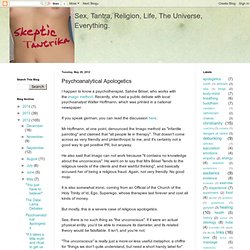

25 Acts of Body Language to Avoid. Our body language exhibits far more information about how we feel than it is possible to articulate verbally.

All of the physical gestures we make are subconsciously interpreted by others. This can work for or against us depending on the kind of body language we use. Some gestures project a very positive message, while others do nothing but set a negative tone. Most people are totally oblivious to their own body language, so the discipline of controlling these gestures can be quite challenging. Most of them are reflexive in nature, automatically matching up to what our minds are thinking at any given moment. Nevertheless, with the right information and a little practice, we can train ourselves to overcome most of our negative body language habits. Practice avoiding these 25 negative gestures: “ I speak two languages, Body and English. ” — Mae West. Rhetological Fallacies. Human Potential Movement. The Human Potential Movement (HPM) arose out of the milieu of the 1960s and formed around the concept of cultivating extraordinary potential that its advocates believed to lie largely untapped in all people.

The movement took as its premise the belief that through the development of "human potential", humans can experience an exceptional quality of life filled with happiness, creativity, and fulfillment. As a corollary, those who begin to unleash this assumed potential often find themselves directing their actions within society towards assisting others to release their potential. Adherents believe that the net effect of individuals cultivating their potential will bring about positive social change at large. Roots[edit] The movement has its conceptual roots in existentialism and humanism. In the middle of the 1960s, George Leonard did research across the United States on the subject of human potential for the magazine, Look.
Authors and essayists[edit] Notable proponents[edit] Ego and Self. One metaphysical approach to psychology that I particularly enjoy is the following: There is ego, and there is self.

None is better or worse than the other, both just are. Ego is about setting boundaries, affirming yourself, being your own (wo)man, independent and strong. Self is about being connected, in tune with everything, at one with others and the universe as a whole, interdependent and without any need for boundaries, endless, loving, unconditional. Most metaphysical "spiritual" systems seem to have some bias for self over ego.
(The problem is, I suspect, ultimately unavoidable: The sentence above - "both just are" - is itself an expression of self, not of ego. Basically, what I think is that you just naturally go from one state to the other, and back again, several times every day or even every minute. In fact, those visualisations are so obvious and unexciting that I hasten to name them. Rational emotive behavior therapy. History[edit] Precursors of certain fundamental aspects of REBT have been identified in various ancient philosophical traditions, particularly Stoicism.[9] For example, Ellis' first major publication on rational therapy describes the philosophical basis of REBT as the principle that a person is rarely affected emotionally by outside things but rather by ‘his perceptions, attitudes, or internalized sentences about outside things and events.' He adds, This principle, which I have inducted from many psychotherapeutic sessions with scores of patients during the last several years, was originally discovered and stated by the ancient Stoic philosophers, especially Zeno of Citium (the founder of the school), Chrysippus [his most influential disciple], Panaetius of Rhodes (who introduced Stoicism into Rome), Cicero, Seneca, Epictetus, and Marcus Aurelius.

Theoretical assumptions[edit] Albert Ellis[16] posits three major insights of REBT: Psychological dysfunction[edit] Mental wellness[edit] Psychoanalytical Apologetics. I happen to know a psychotherapist, Sabine Bösel, who works with the imago method.

Recently, she had a public debate with local psychoanalyst Walter Hoffmann, which was printed in a national newspaper. If you speak german, you can read the discussion here. Mr Hoffmann, at one point, denounced the Imago method as "infantile parroting" and claimed that "all people lie in therapy". That doesn't come across as very friendly and philanthropic to me, and it's certainly not a good way to get positive PR, but anyway. He also said that Imago can not work because "it contains no knowledge about the unconscious". Manipulation News, Videos, Reviews and Gossip - Lifehacker.